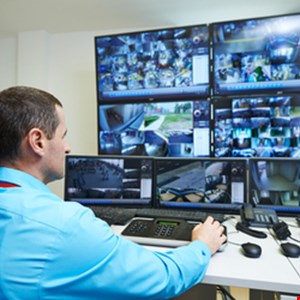- I tested a Pixel Tablet without any Google apps, and it's more private than even my iPad
- My search for the best MacBook docking station is over. This one can power it all
- This $500 Motorola proves you don't need to spend more on flagship phones
- Finally, budget wireless earbuds that I wouldn't mind putting my AirPods away for
- I replaced my Linux system with this $200 Windows mini PC - and it left me impressed
One in Three Workers Monitored by Their Employers

Almost one in three (32%) workers are being monitored at work by their employers, according to a new survey of 2424 UK workers by the union Prospect.. This represents a substantial rise from April 2021, when 24% of employees reported being subjected to monitoring at work, sparking privacy and intrusion concerns.
This rise has partially been driven by a significant uptick in home workers being monitored by cameras over this period, up from 6% in April to 13%.
The survey, conducted by the pollster Opinium, also found that four in five (80%) of workers believe the use of webcams to monitor remote workers should either be banned (52%) or heavily regulated (28%). Additionally, just 8% of respondents thought employees should be able to unilaterally decide when to use cameras to monitor home workers.
Younger workers (18-34) were more likely to be monitored than older counterparts, with almost half (48%) reporting that they are monitored at work. This includes 20% being monitored with cameras.
Current Information Commissioner Office (ICO) guidance states that employers should ensure staff are aware of monitoring at work before it starts and explicitly inform them why this is being done. This applies whether at home or in the office.
Amid the increase in hybrid working during the COVID-19 pandemic, the ICO is currently updating its guidelines in this area. The BBC quoted an ICO spokesman as saying: “People expect that they can keep their personal lives private and that they are also entitled to a degree of privacy in the workplace.
“We are currently working on updating our employment practices guidance to address the changes in data protection law and to reflect the new ways employers use technology and interact with staff.”
Prospect is now asking the government to consider making it illegal for employers to use camera monitoring in people’s homes outside of meetings and calls.
Prospect general secretary Mike Clancy said: “We are used to the idea of employers checking up on workers, but when people are working in their own homes, this assumes a whole new dimension.
“New technology allows employers to have a constant window into their employees’ homes, and the use of the technology is largely unregulated by government.
“We think that we need to upgrade the law to protect the privacy of workers and set reasonable limits on the use of this snooping technology, and the public overwhelmingly agrees with us.”
Commenting on the story, Sridhar Iyengar, MD for Zoho Europe, said: “This new data is alarming and demonstrates how misuse of new technology can allow employers to invade staff privacy through, for example, viewing employees’ web browsing page by page,or even watching them at their home ‘desk’ via their webcam. It is even more concerning that the government does not regulate this technology. The ICO is right to guide bosses to ensure their staff are made aware of any remote monitoring and the reasons why it is being deployed. The practices raised in the research are clear examples of employer misuse of remote monitoring software and a violation of employee privacy.”

